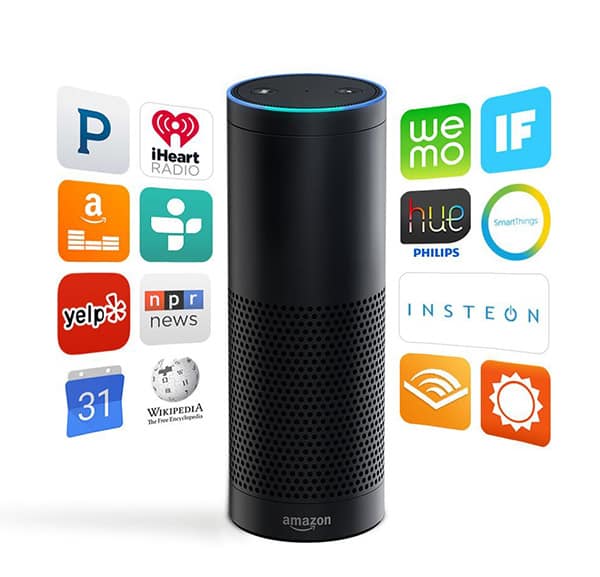
Above: Content services available on the Amazon Echo. Photo courtesy Amazon.
The Amazon Echo is an interesting enough device in the United States, but what will happen in Trinidad and Tobago? You’ll still be able to listen to Amazon Prime stations, and you’ll be able to look things up on Wikipedia through it.
It’s clear it was designed with only a few nations in mind.
At least nations with zip codes. They could have done it by IP address of your network, but that would have been an engineering bias rather than the implicit sales bias of this device. IP spoofing might help with some services, but that would depend on how strict the company intends to be on such services.
The Amazon Echo also requires a zip code to set up. This in turn affects your ability to set alarms by time, which can easily be remedied by using a zip code from Florida or New York if you’re in T&T.
It also means any weather reports will be for whichever zip code you use. And, though I’m uncertain, it could potentially block you from content others will have available with a flip of a switch at Amazon (based on your IP address). Or maybe not. Maybe that’s a hole that they’ll need to patch as people start putting fake zip codes in it.
And what about music? My Echo could find Bunji Garlin and David Rudder in Amazon Prime, but it has no idea of who Machel Montano, Lord Kitchener, The Mighty Sparrow and others were. If you have bought their music through Amazon Prime, you’ll have it, otherwise…
If I were in Trinidad and Tobago, the Amazon Echo would be a novelty and likely a source of frustration with the rather large list of useful things that I would be unable to do by accident of geography. At a price of US$180, I’d say it’s a really good wifi speaker that only works with Amazon Prime.
Could it be more? Yes. But it isn’t yet.
Taran Rampersad has over three decades of experience working with technology, the majority of which was as a software engineer.
He is a published author on virtual worlds and was part of the team of writers at WorldChanging.com that won the Utne Award.
He is an outspoken advocate of simplifying processes and bending technology’s use to society’s needs.
His volunteer work related to technology and disasters has been mentioned by the media (BBC), and is one of the plank-owners of combining culture with ICT in the Caribbean (ICT) through CARDICIS and has volunteered time towards those ends.
As an amateur photographer, he has been published in educational books, magazines, websites and NASA’s ‘Sensing The Planet’.
These days, he’s focusing more on his writing and technology experiments. Feel free to contact him through Facebook Messenger.



I’m guessing the fire TV stick will be the same. It sucks not having the benefits of amazon prime without using a dns blocker but has anyone tried Roku or Apple TV in Trinidad?
It falls down to Copyright Law, really, and that in turn gets into the larger Network Neutrality debate that so many ignore.
What this does remind me of is the potential for the carterfone: https://en.wikipedia.org/wiki/Carterfone
Look up Duane Boodasingh, he’s a major fan and user of Roku.